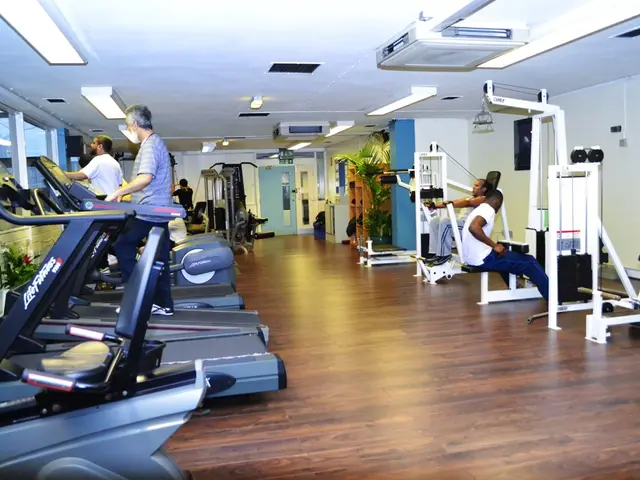Exercise and Brain Health: Even a Minimal 5-Minute Workout Could Promote Cognitive Wellness
Aging can bring about various changes in the brain, including volume loss, a slowdown in the production of crucial neurotransmitters, and a decline in cognitive function [1]. To combat these issues and preserve brain health, there are several lifestyle factors that can help.
Researchers have found that older adults, specifically those who engage in moderate-to-vigorous physical activity during the day, possess significantly better processing speed, working memory, and executive function than those who are less active [2]. Intriguingly, even short bouts of MVPA — activities that increase heart rate and breathing like jogging, brisk walking, swimming, cycling, or dancing — can lead to noticeable improvements in cognitive health [3].
"Older adults who stay active through moderate-to-vigorous physical activity during the day may have better cognitive functioning," Audrey M. Collins, PhD, a postdoctoral researcher in the Department of Neuroscience at the AdventHealth Research Institute, explained. "Research suggests that even in late adulthood, our brains don't lose the capacity for plasticity, if leveraged in the right way."
Collins led a study recently published in the journal Age and Ageing, which substantiated the notion that as little as 5 minutes of MVPA per day could potentially keep the brain healthy as we age [4]. For this study, Collins and her team analyzed the health data of 585 older adults, aged 65 to 80 years, who participated in the U.S.-based IGNITE study [4]. The purpose of the study was to examine the relationship between a person's daily activities, including sleeping, sedentary time, light physical activity, and MVPA, to their cognitive performance.
Interestingly, the research revealed that older adults who engaged in more MVPA had significantly better processing speed, working memory, and executive function [4]. The findings suggest that the way time is used each day—be it sleeping, sedentary behavior, or physical activity—may be linked and impact cognitive function in late adulthood. Additionally, the cognitive gains were observed most prominently in participants who went from doing no MVPA to a minimum of 5 minutes a day [4].
Moreover, Collins and her team found that the benefits of MVPA on cognitive function are not universal for all domains but are particularly significant for processing speed, working memory, and executive function [4]. "Our results suggest that hypothetically reallocating time to moderate-to-vigorous physical activity may be beneficial for cognitive function, regardless of what lifestyle behavior this time was reallocated from," Collins explained. "Furthermore, even small increases of moderate-to-vigorous physical activity may be favorable."
The findings of this study align with previous research supporting the clear cognitive benefits of physical exercise for older adults [5]. "Even short bursts of moderate-to-vigorous exercise can bolster brain health, suggesting that people need not become triathletes to protect their mental abilities as they age," commented Gary Small, MD, chair of psychiatry for Hackensack University Medical Center.
As our society continues to age, dementia cases are becoming increasingly prevalent. Engaging in regular MVPA offers a promising and accessible means of maintaining cognitive health for older adults. Further study is required to confirm these findings and develop strategies for incorporating MVPA into daily routines for optimal brain health benefits.
- Seniors who participate in moderate-to-vigorous physical activity (MVPA) may show better cognitive functioning as they age, according to Audrey M. Collins, a postdoctoral researcher in the Department of Neuroscience.
- Research findings suggest that as little as 5 minutes of MVPA per day could potentially help preserve cognitive health in older adults, as demonstrated by Collins' study published in the journal Age and Ageing.
- General health, neurology, and the health-and-wellness industry can all benefit from the acknowledgement that MVPA can lead to improvements in processing speed, working memory, and executive function in older adults.
- Fitness activities like jogging, brisk walking, swimming, cycling, or dancing can have a substantial impact on cognitive health in seniors, even if practiced in short bouts.
- Older adults might consider incorporating MVPA into their daily routines, as these activities could offer a simple yet effective method for decreasing the risk of cognitive decline associated with aging and conditions such as Alzheimer's disease.








